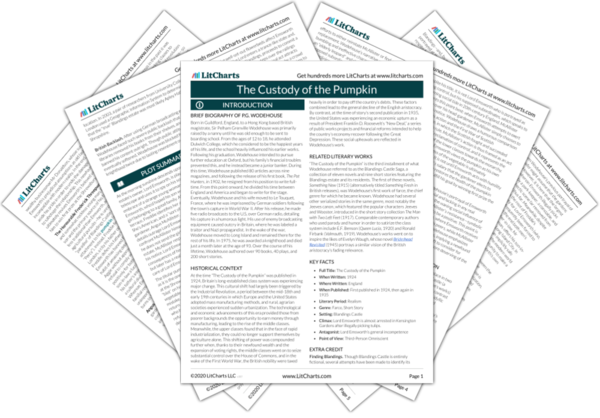In the end, McAllister’s return assures the success of Emsworth’s pumpkin. However, it’s significant that Sir Gregory Parsloe-Parsloe does not acknowledge McAllister, but instead offers his praise to Lord Emsworth, who readily accepts. Though Emsworth and McAllister stand side by side in the end, implying a level of camaraderie, this scene calls attention to the self-congratulatory nature of the aristocracy, and it leaves the reader to question which of the two men is truly more deserving of the award.
